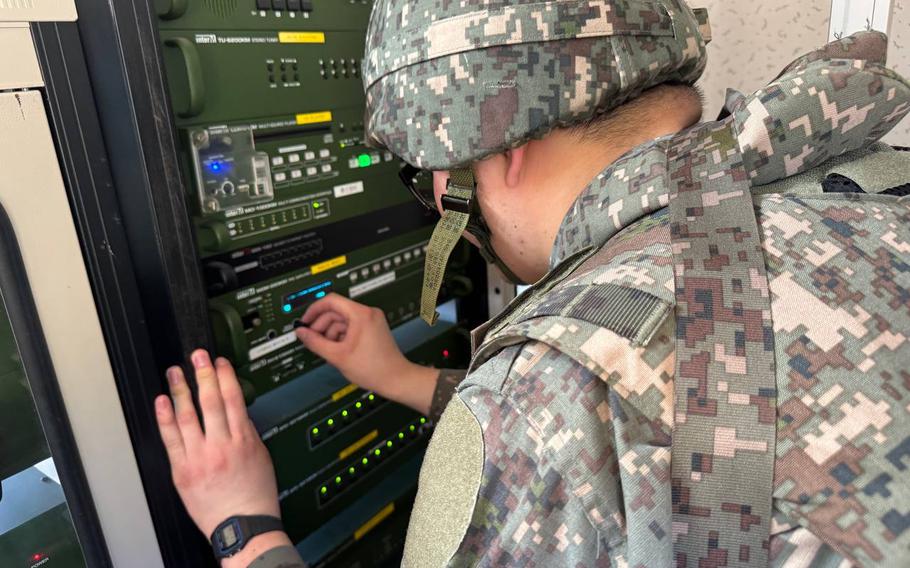
A South Korean soldier inspects loudspeaker equipment at an unspecified location near the Demilitarized Zone in South Korea, June 9, 2024. (South Korea Army)
CAMP HUMPHREYS, South Korea — The influential sister of North Korea’s leader on Thursday denied as a “red herring” a claim that her country had dismantled some its propaganda loudspeakers along its border with South Korea, according to state media.
Kim Yo Jong labeled as “unfounded unilateral supposition” the recent report by South Korea’s military that North Korea removed some of its loudspeakers along the Demilitarized Zone, according to the Korean Central News Agency.
Kim is North Korean leader Kim Jong Un’s sister and a member of North Korea’s ruling council, the State Affairs Commission.
South Korea is “misleading the public … by saying that we have removed the loudspeakers,” she said, according to KCNA. “We have never removed loudspeakers installed on the border area and are not willing to remove them.”
South Korea’s military reported Aug. 9 that it detected North Korean forces dismantling their loudspeakers along the 160-mile DMZ. Five days earlier, the South’s military had begun removing loudspeakers on its side of the border in hopes of de-escalating tensions between their countries.
South Korea silenced its loudspeakers on June 11; the North also ceased broadcasting later that day.
South Korean army Col. Lee Sung Joon, the Joint Chiefs of Staff spokesman, declined to go into detail at a news conference Thursday but said “the military has explained the facts of what we observed.”
“It is difficult to explain their intentions here,” he said of Kim Yo Jong’s latest statement. “North Korea has repeatedly made false claims.”
South Korean President Lee Jae-myung at a Cabinet meeting Tuesday reiterated the North was dismantling some of its loudspeakers and said he hoped it was the first step to “reopen dialogue and communication between the two Koreas.”
Since the 1950-53 Korean War, North and South Korea have aimed propaganda loudspeakers at each other to demoralize opposing forces stationed at the DMZ.
North Korea’s loudspeakers typically broadcasted political monologues criticizing the South and the United States; the South’s broadcasts include pop music, weather reports and recent news.
The lack of direct communication between Pyongyang and Seoul could be contributing to the opposing claims, said Lim Jae-Cheon, a Korea University diplomacy studies professor, by phone Thursday.
“It seems that South Korea may be over-interpreting even small movements by the North,” he said. “On the other hand, North Korea appears to make decisions based on its own judgement, such as halting loudspeaker broadcasts.”